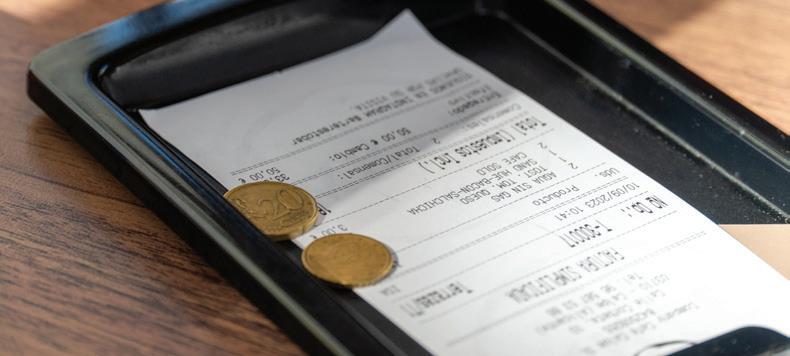
2 minute read
Eumundi Voice Issue 122, 24 July 2025
FINANCE
Who owns the tips?
Now that the end of financial year has finalised, it is important to be aware of your responsibilities regarding tips. Tips may often seem insignificant due to their small amount, however some employees across the country can earn a substantial income from them throughout the year.
Whether you receive tips directly from customers or from your employer, you must declare them as taxable income and keep a manual record of them according to the Australian Taxation Office (ATO). Often businesses will have a jar or box where customers can leave their tips. The tips are then shared equally among the staff at the end of the day or week, based on the hours worked. However, sometimes customers prefer to give the tip directly to the person who served them. While these situations are less common, they still count as tips. Although this may seem unfair, since a customer may have tipped due to a particular employee's exceptional service, it is the usual practice for most Australian businesses. Employers are not required to report their employees’ tips as a PAYG deduction or include them in their payment summary. As a result, it is recommended to keep tips apart from payroll. While keeping records of tips that are paid to staff is not mandatory, it is advisable to keep receipts or records of how much is distributed to each employee. When tips are collected on behalf of staff and distributed, they don't need to be reported as income or subject to GST, as they don't enter the business. In the case of a tip jar, it’s regarded as extra cash given to employees. However, if the money is kept as income without passing it on to staff, it becomes income for the business and must be reported in BAS and financials. To keep the management of tips simple, consider using a tip jar and splitting the cash among staff at the end of a shift.











